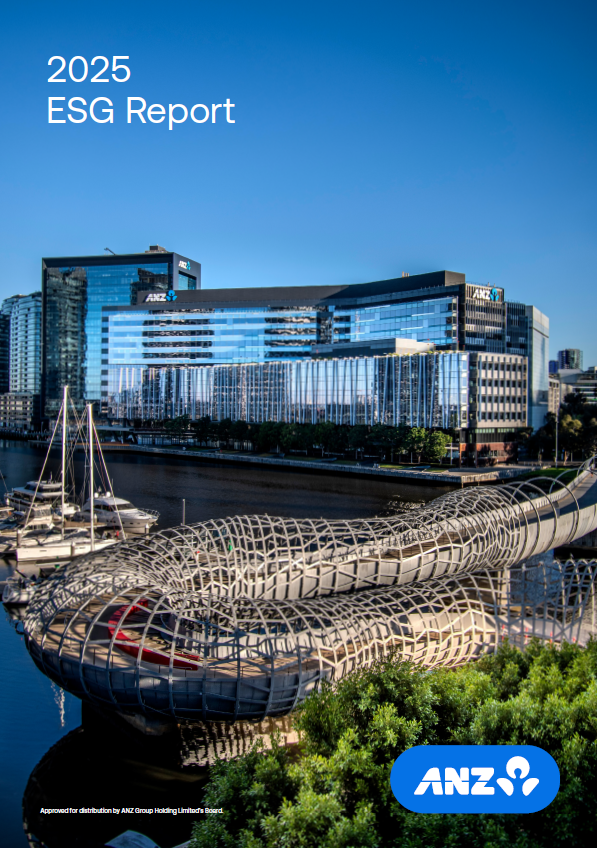Fraud protection.
Now it's personal.
ANZ Falcon® technology monitors millions of transactions every day to help keep you safe from fraud.
Falcon® is a registered trademark of Fair Issac Corporation.

Fraud protection.
Now it's personal.
ANZ Falcon® technology monitors millions of transactions every day to help keep you safe from fraud.
Falcon® is a registered trademark of Fair Issac Corporation.
Fraud protection.
Now it’s personal.
ANZ Falcon® technology monitors millions of transactions every day to help keep you safe from fraud.
Falcon® is a registered trademark of Fair Isaac Corporation.
Social and environmental risks arising from transactions, projects and customer relationships can affect society, human rights, associated communities and the environment. Through our engagement with our large business customers, we seek to identify and understand social and environmental risks posed by their activities and to understand how these are being managed by the customer.
We regularly review our existing lending practices and policies to ensure there is adequate consideration of current and emerging social and environmental issues.

ANZ’s Social and Environmental Risk Policy and Standard applies to ANZ’s banking business, excluding Suncorp Bank, which currently operates under a separate authorised deposit-taking institution (ADI) licence.
Our Social and Environmental Risk Policy (Policy) outlines ANZ’s approach to the management and mitigation of social and environmental risks arising from large business customer activities, including the impacts of climate-related and nature-related risks. Further detail on our Policy can be found here.
Our Social and Environmental Risk Standard (Standard) provides our bankers with more detail on our internal requirements and customer expectations, having regard to ANZ’s more specific policy positions, as applicable. The Standard includes ‘core requirements’ which must be considered in ANZ’s relevant decision making process. These core requirements include consideration of expectations we have of our large business customers in relation to human rights, bribery and corruption, land acquisition, and culturally or environmentally sensitive areas. The core requirements apply in addition to the requirements specific to decision-making relating to customers, activities or transactions involved in certain sensitive sectors, explained further below.
The Policy and Standard are strictly applied to large business customers1. The Policy and Standard applies to other customers where ANZ perceives that a customer or their activities may have a material social and environmental impact, and otherwise guides decision-making for customers managed in ANZ divisions other than Institutional.
We review the Policy and Standard at least every three years, with oversight from our Ethics and Responsible Business Committee. The review process involves, for example, consideration of changes to customer practices, international standards, emerging social and environmental issues and stakeholder feedback.
In addition to the general and core policy requirements of ANZ’s decision makers, for identified 'sensitive sectors', ANZ has further requirements specific to considering customers, transactions or activities relating to those sectors or activities. For each sensitive sector, we have described aspects of our sector specific approach in the links below.
More than one set of sensitive sector requirements may apply to the same customer/activity under consideration. For example, where the extractives industry requirements apply to a customer and land and forest management requirements apply to the customer’s proposed activity.
On 31 July 2024, ANZ acquired 100% of the shares in SBGH Limited, the immediate holding company of Suncorp Bank. Following the acquisition, Suncorp Bank commenced a phased transition to adopt the policies and processes of ANZ. During the transition period Suncorp Bank will be subject to a combination of ANZ and Suncorp Bank policies. ANZ’s Social and Environmental Risk Policy and Standard do not currently apply to Suncorp Bank.
Our social and environmental risk screening assists bankers in the application of the Policy and the Standard. Screening is performed for large business customers2:
Under our credit policy, we review our large business customers at least annually. This includes the consideration of issues specified in our Social and Environmental Risk Policy and Standard, as appropriate. We expect our large business customers in all sectors to implement appropriate stakeholder engagement strategies and plans, and this is a matter that bankers are directed to consider through the Social and Environmental Risk screening.
Our Reputation Risk Radar service captures certain reports and findings of social, environmental, and significant governance incidents and allegations against existing and prospective large business customers. We also rely on dialogue between ANZ relationship managers and their customers to alert us to issues or potential issues. Notable incidents and allegations are referred, where appropriate or relevant, to our applicable risk management forums in which social, environmental and credit risks are considered.
Where ANZ’s expectations are not met, where appropriate, we may encourage a customer to identify a specific and time-bound improvement or remediation plan. Where ANZ identifies a material issue, we may decline further financing or exit the relationship if the customer is not willing to commit to an improvement or remediation plan.
Our Climate Risk Standard is principles-based and seeks to provide a consistent approach to identifying, assessing and managing climate risk. This includes key elements taken into consideration when making decisions that may result in actual or potential climate risks and impacts to our customers or ANZ.
The Standard includes requirements relating to:
Relevant employees are educated about our Social and Environmental Risk Policy and the Social and Environmental Risk Standard, including specific requirements for ‘sensitive sectors’.
Educating relevant employees on our policies and standards, and how they are applied in practice, is important for the effective management of the social and environmental risks when considering our large business customers’ transactions and relationships.
Our training focuses on the Policy and Standard, including our approach to human rights. This training is mandatory for new employees authorised to make credit decisions relating to large business customers. Guidance is also provided on how to identify and escalate potential issues to business and risk leaders, and where necessary to the Ethics and Responsible Business Committee sub-committee, which examines sensitive wholesale transactions.
In addition to our internal education, we also provide briefings to customers on our social and environmental risk management and how our approach may impact the products and services we offer.


This report provides stakeholders with detailed information on ANZ’s ESG performance and challenges. It includes performance against our ESG targets and our management of material ESG issues.
1. Large business customers are customers of ANZ’s Institutional division where ANZ has a credit exposure.
2. A new screening is not required if an assessment has been completed within the previous 3 months, unless new information becomes available that ANZ considers may materially and adversely change the earlier assessment.
3. In this context, a material issue may relate to an adverse political, social (including human rights), environmental or economic impact of a customer’s activities or proposed activities that ANZ identifies is material in nature.